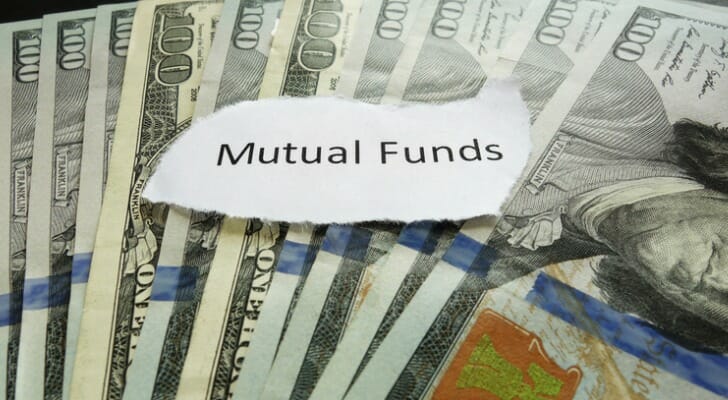As with any type of investment, you’ll have to pay taxes on your mutual fund returns. If you sold the fund, you’ll have to pay capital gains taxes or ordinary income taxes depending on when the sale occurred. If you didn’t sell the fund but received dividend payouts, you’ll still need to pay taxes on those. You may also want to work with a financial advisor to help map out the tax obligations on your investment horizon.
When Do I Pay Taxes on Mutual Funds?
Wherever investment returns are being earned, you know Uncle Sam will be nearby. Mutual funds are no different, though you may encounter a few different types of taxes on income from them. Here are the two points following which you have to pay taxes on mutual funds:
Sale of Mutual Funds
The obvious reason you’ll need to pay taxes on a mutual fund investment is if you sold shares of it in a given year. After all, you’ll receive funds in exchange for the sale.
When selling mutual funds, your broker should send you a tax document detailing the sale. At the end of the year, make sure to consider the capital gains listed on this form when filing your taxes.
Mutual Fund Dividends
If your mutual fund pays out dividends, then you’ll have to pay taxes on that income. Generally, dividends paid out will be ‘qualified’ dividends.
At the end of the year, your brokerage company should send you a tax form that details all of the dividends paid to you from a particular fund. This tax form is called 1099-DIV. Don’t forget to report this income when you file your taxes.
How Much Will I Pay in Taxes on Mutual Funds?
Whether you are selling your mutual fund shares or receiving a dividend, there are taxes to be paid. Here are some rates you can expect when paying tax on mutual funds:
Qualified Dividends
If you receive qualified dividends, then you’ll pay a special tax rate on that income. Qualified dividends are taxed at lower rates because they meet IRS requirements, such as being paid by U.S. corporations or qualified foreign corporations and meeting certain holding-period rules. More specifically, you’ll pay 0%, 15%, or 20% on qualified dividends based on your income bracket and filing status.
Here are the thresholds broken down by tax filer for the 2025 tax year 1 :
| Tax Rate | Single | Married Filing Jointly | Married Filing Separately | Head of Household |
|---|---|---|---|---|
| 0% | $0 – $48,350 | $0 – $96,700 | $0 – $48,350 | $0 – $64,750 |
| 15% | $48,351 – $533,400 | $96,701 – $600,050 | $48,351 – $300,000 | $64,751 – $566,700 |
| 20% | $533,401+ | $600,051+ | $300,001+ | $566,701+ |
Ordinary Income

When you sell mutual funds, the taxes you pay depend on how long you held them.
If you own the fund for less than one year, the profit is considered a short-term capital gain, which is taxed as ordinary income at your regular tax rate.
For tax year 2025, ordinary income is taxed as follows:
| Rate | Single Filers | Married Filing Jointly | Head of Household | Married Filing Separately |
|---|---|---|---|---|
| 10% | $0 – $11,925 | $0 – $23,850 | $0 – $17,000 | $0 – $11,925 |
| 12% | $11,926 – $48,475 | $23,851 – $96,950 | $17,001 – $64,850 | $11,926 – $48,475 |
| 22% | $48,476 – $103,350 | $96,951 – $206,700 | $64,851 – $103,350 | $48,476 – $103,350 |
| 24% | $103,351 – $197,300 | $206,701 – $394,600 | $103,351 – $197,300 | $103,351 – $197,300 |
| 32% | $197,301 – $250,525 | $394,601 – $501,050 | $197,301 – $250,500 | $197,301 – $250,525 |
| 35% | $250,526 – $626,350 | $501,051 – $751,600 | $250,501 – $626,350 | $250,526 – $375,800 |
| 37% | $626,351+ | $751,601+ | $626,351+ | $375,801+ |
Capital Gains Income
If you hold a fund or another asset for more than one year, your profit will be treated as a long-term capital gain, which is usually taxed at 0%, 15%, or 20% depending on your income. This is often lower than ordinary income tax rates, so waiting more than one year before selling can reduce what you owe.
For reference, here is the capital gains rate for tax year 2025:
| Tax Rate | Single | Married Filing Jointly | Married Filing Separately | Head of Household |
|---|---|---|---|---|
| 0% | $0 – $48,350 | $0 – $96,700 | $0 – $48,350 | $0 – $64,750 |
| 15% | $48,351 – $533,400 | $96,701 – $600,050 | $48,351 – $300,000 | $64,751 – $566,700 |
| 20% | $533,401+ | $600,051+ | $300,001+ | $566,701+ |
Tax-Advantaged Accounts and Mutual Funds
Mutual fund taxes don’t just depend on what the fund earns. They also depend on where you keep the investment. If you hold mutual funds in a regular taxable brokerage account, every dividend, every distribution, and every realized gain shows up on your tax return that year. Even if you reinvest those payments, the IRS still treats them as income you must report. That means ongoing tax bills year after year.
By contrast, mutual funds inside a traditional IRA or 401(k) grow without annual taxation. Dividends and capital gains compound tax-deferred, so you don’t pay until you take money out. When you do withdraw, the IRS taxes the distributions as ordinary income. This allows the account to grow faster over time, because none of the yearly growth is being reduced by taxes. The catch is that withdrawals before retirement age may face penalties along with income tax.
A Roth IRA or Roth 401(k) changes the picture even more. With these accounts, you contribute after-tax dollars, but the growth and qualified withdrawals in retirement are tax-free. A mutual fund that would normally throw off taxable dividends in a brokerage account can grow for decades in a Roth without creating a single tax bill. For long-term investors, this combination of tax-free growth and tax-free withdrawal can be especially powerful.
Investors often use account placement as a strategy. Funds that generate high levels of taxable income, such as bond funds or actively managed stock funds, are usually better placed inside IRAs or 401(k)s where their frequent distributions won’t create annual tax drag. On the other hand, index funds or ETFs that rarely distribute gains can be more efficient in a taxable account. Thinking about account type and fund type together can help reduce your lifetime tax burden.
The takeaway is that mutual fund taxes are not only about capital gains and dividend rates. They are also about how you structure your accounts. By using retirement accounts wisely, you can defer or eliminate tax on growth, reduce yearly liabilities, and keep more of your returns compounding over time. This choice between taxable, tax-deferred, and tax-free accounts is one of the most effective ways to manage the real cost of investing.
Bottom Line

If you’re investing in mutual funds, be prepared to pay taxes at multiple points. First, you’ll need to pay taxes on any dividends you receive from the fund while you hold it. And of course, you’ll need to pay taxes on any capital gains you earn from the sale of the fund.
Tax Planning Tips
- Planning your taxes for the year can be difficult, especially when you start working in investment income. A financial advisor can help with this, though. Finding a financial advisor doesn’t have to be hard. SmartAsset’s free tool matches you with vetted financial advisors who serve your area, and you can have a free introductory call with your advisor matches to decide which one you feel is right for you. If you’re ready to find an advisor who can help you achieve your financial goals, get started now.
- Use our no-cost federal income tax calculator to get a quick estimate of what you’ll owe the government.
Photo credit: ©iStock.com/zimmytws, ©iStock.com/lakshmiprasad S, ©iStock.com/Marcus Millo
Article Sources
All articles are reviewed and updated by SmartAsset’s fact-checkers for accuracy. Visit our Editorial Policy for more details on our overall journalistic standards.
- https://www.irs.gov/pub/irs-drop/rp-24-40.pdf. Accessed Sept. 15, 2025.
